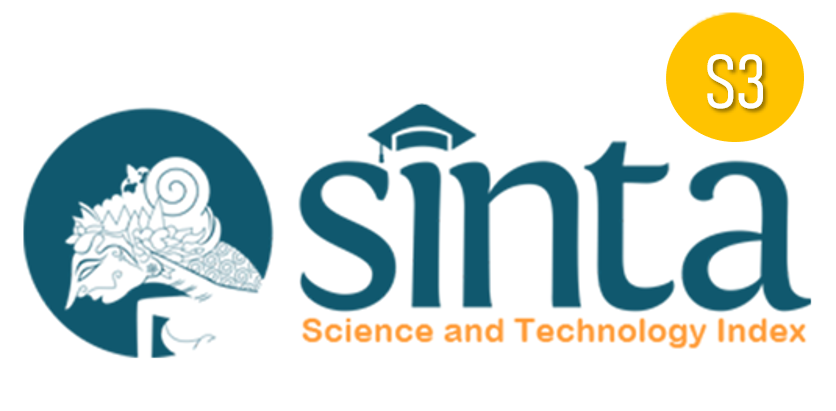Social Media on the Students’ Academic Performance
Abstract
Full Text:
PDFReferences
Akram, W., and Kumar, R. (2017). A study on positive and negative effects of social media on society. International Journal of Computer Sciences and Engineering, 5(10), 347-354.
Al-Menayes, J. J. (2015). Penggunaan media sosial, keterlibatan, dan kecanduan sebagai prediktor kinerja akademis. Jurnal Internasional Studi Psikologi, 7(4), 86-94.
Alwagait, E., Shahzad, B., and Alim, S. (2015). Impact of social media usage on students academic performance in Saudi Arabia. Computers in Human Behavior, 51(2015), 1092-1097.
Amin, Z., Mansoor, A., Hussain, S. R., and Hashmat, F. (2016). Impact of social media of student’s academic performance. International Journal of Business and Management Invention, 5(4), 22-29.
Boyd, D. (2008) Taken out of context: American teen sociality in networked publics. PhD Dissertation, University of California Berkeley.
Celestine, A. U., and Nonyelum, O. F. (2018). Impact of social media on students’ academic performance. International Journal of Scientific and Engineering Research, 9(3), 1454-1462.
Chassiakos, Y. L. R., Radesky, J., Christakis, D., Moreno, M. A., and Cross, C. (2016). Children and adolescents and digital media. Pediatrics, 138(5), 15-18.
Ellison, N. B., Steinfield, C., and Lampe, C. (2007). The benefits of Facebook friends: Social capital and college students’ use of online social network sites. Journal of Computer-Mediated Communication, 12(4), 1143-1168.
Giunchiglia, F., Zeni, M., Gobbi, E., Bignotti, E., and Bison, I. (2018). Mobile social media usage and academic performance. Computers in Human Behavior, 82(2018), 177-185.
Marwick, A. E., and Boyd, D. (2014). Networked privacy: How teenagers negotiate context in social media. New Media and Society, 16(7), 1051-1067.
Owusu-Acheaw, M., and Larson, A. G. (2015). Use of social media and its impact on academic performance of tertiary institution students: A study of students of Koforidua Polytechnic, Ghana. Journal of Education and Practice, 6(6), 94-101.
Paul, J. A., Baker, H. M., and Cochran, J. D. (2012). Effect of online social networking on student academic performance. Computers in Human Behavior, 28(6), 2117-2127
Qotrunnada, Q., and Nurani, A. S. Teenagers Knowledge About Traditional West Java Cakes. Indonesian Journal of Community and Special Needs Education, 1(1), 15-18.
Miguel, R. S. (2010). Study on facebook and grades becomes learning experience for researcher. Tech News World, http://www.technewsworld.com/rsstory/66805.html retrieved on 9 April 2021.
Winarni, R. S., and Rasiban, L. M. (2021). Perception of japanese students in using online video as a learning media. Indonesian Journal of Educational Research and Technology, 1(1), 15-16.
DOI: https://doi.org/10.17509/ijert.v1i2.33397
Refbacks
- There are currently no refbacks.
Copyright (c) 1970 Universitas Pendidikan Indonesia

This work is licensed under a Creative Commons Attribution-ShareAlike 4.0 International License.







.png)




